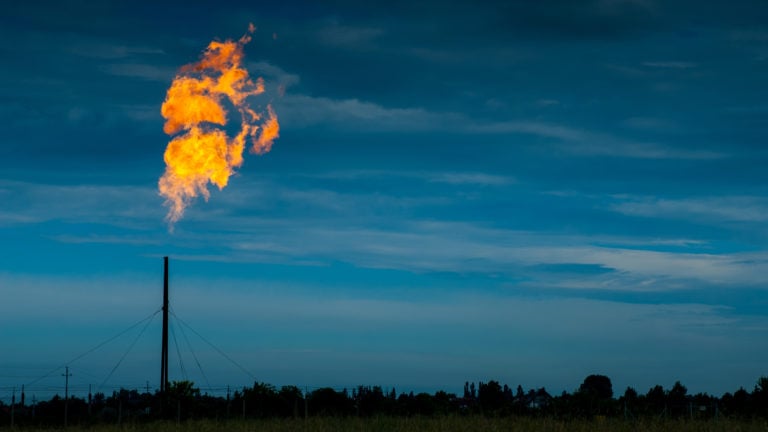Waterkeeper Alliance Responds to EPA’s Major New Rules To Cut Oil and Gas Methane Emissions
By: Waterkeeper Alliance

Agency Promises More In the Future to Address Flaring and Marginal Wells
President Biden announced at the UN Climate Summit today the U.S. Environmental Protection Agency (EPA)’s release of a proposed Clean Air Act rule that will strengthen Obama-era requirements with the goal of significantly reducing methane and other harmful emissions from the oil and gas industry, both from new sources and, for the first time, expanding those requirements to existing sources.
In response Kate Hudson, western U.S. advocacy coordinator with Waterkeeper Alliance, released the following statement:
“These rules are an important step in the right direction, and a powerful signal that the Biden administration is ready to confront the climate crisis head-on by cutting methane pollution. However, these proposed rules must be strengthened before they are finalized to ensure EPA is using the full force of the Clean Air Act to meet this moment to tackle the climate crisis by establishing regular leak monitoring requirements for all oil and gas wells, including smaller, leak-prone wells, imposing strict limits on routine flaring at oil wells, among other key improvements. The Western U.S. is in the grips of a severe drought that is putting enormous stress on river systems that more than 40 million people depend on for their water supply. Communities are coping with water shortages, wildfire threats, and destructive and deadly flash flooding that can all be tied to climate change. In the U.S. alone, the oil and gas industry releases 16 million metric tons of methane each year. Without immediate action, methane pollution from the industry will continue to skyrocket – and those on the frontlines of this crisis, including Black, Brown, Indigenous, and other underserved communities, will be forced to deal with the worst impacts.”
The Intergovernmental Panel on Climate Change (IPCC)’s August 2021 report highlights the costs of inaction, details the devastating impacts of climate change around the world, and underscores that we are running out of time to tackle this crisis. “We have the tools and technology to cut methane pollution from the oil and gas sector by as much as 65 percent below 2012 levels by 2025, but there is no time to waste. The protections just proposed by EPA are an important step forward, but the proposed rules must be strengthened before they are finalized. Anything less is a missed opportunity that will accelerate the pace of climate change, with dire consequences for the health of our families, our communities, the environment, and the future of our planet.”